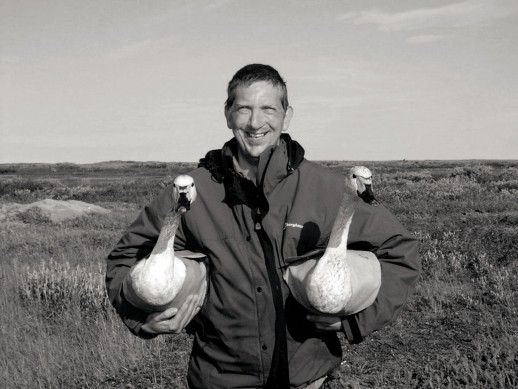The Diaries of Brett Westwood. BBC R4, Mon-Fri, 12-16 January 2015. All five episodes now on the iPlayer.
Andy Childs tuned in:
Brett Westwood is a well-known voice on radio, a naturalist and author, wildlife enthusiast and rightly celebrated for his work on bird conservation. For forty years now, ever since he was fifteen years old, he has kept a nature diary, documenting the changes that have affected a five square mile patch of countryside near his home west of Stourbridge on the border of N.Worcs and Staffordshire. An ordinary patch of countryside with a canal, river, woodland, meadows, farms and an old sewage farm but hardly any urban development, Westwood’s patch, as seen through his patient, attentive eyes and documented in his diaries, reveals the many profound changes that such a wildlife habitat has undergone in less than half a century. And, being typical of what’s happening around the rest of the countryside, it highlights the inescapable fact that wildlife species are declining and proliferating in ways that we only partly understand and seem unable or reluctant to do anything about.
I suspect that Brett’s diaries are not particularly lyrical – more a catalogue of sightings and observations – the jottings of a scientist rather than a poet; which is one of the reasons I think The Diaries of Brett Westwood, broadcast on Radio 4 in five fifteen minutes parts, is such a success. With the usual expert palette of Chris Watson field recordings in the background, Brett’s relaxed, conversational tone is completely engaging and in talking about his diaries, rather than reading extensively from them, and the changes in his immediate environment that they reveal, he exudes such a fierce passion and a sense of purpose behind this dedicated undertaking that it’s easy to understand the motive for all the seemingly mundane observations and his endless list making. Every episode focuses on a different area of his plot – farmland, valley, sewage, woodland and canal – and in each he meticulously records, at least twice a week, bird sightings and numbers and virtually all flora and fauna that his expert knowledge allows him to appreciate.
He writes his field notes on scraps of paper and in rough notebooks and then “writes them up over a mug of tea when I get home”. The diaries are a “motley collection of different-sized hardback notebooks” but looking back through them he his able to discern, for instance, that since the 60s the number of grey partridges seen on the farmland has declined by 91% and corn buntings by 90%. We know that in these cases the use of pesticides that kill off insects and so deprive the birds’ chicks of food is to blame, but cuckoo numbers have also declined and no-one seems to quite know why. Lapwing numbers have also plummeted.
Conversely but equally mysteriously it seems, the numbers of peregrine falcons and hobbys recorded have soared. There are now 3,000 pairs of hobbys in Britain and the number is rising. Buzzards have also made a spectacular comeback in recent years – Brett delightedly recalls seeing twenty two buzzards following a plough in one of the fields and they can now be found in every county in the kingdom – and this is because apparently we don’t persecute them anymore. Ravens have also benefitted from man’s new-found compassion for the more predatory end of the avian spectrum.
So despite continual alarmist news that should give us all pause for thought at least, it’s not all bad news, and Brett’s concluding message is that the countryside has, and is, changing all the time – whether naturally, or through the destructive and sometimes benign influence of man – and we shouldn’t expect it to be otherwise.
The importance of his diaries and the work of people like Brett Westwood in general though is to make us acutely aware of exactly what those changes are, how rapid and prevalent they are, and what effect they have on a particular habitat’s ecosystem. Whether there can ever be a consensus on the legitimacy of trying to control these changes, either through more regulated control of our more destructive activities or through the more positive influence of re-introducing species, etc however is another question that needs to be addressed if this crucial information is to fulfil its true value.
Radio On archive
